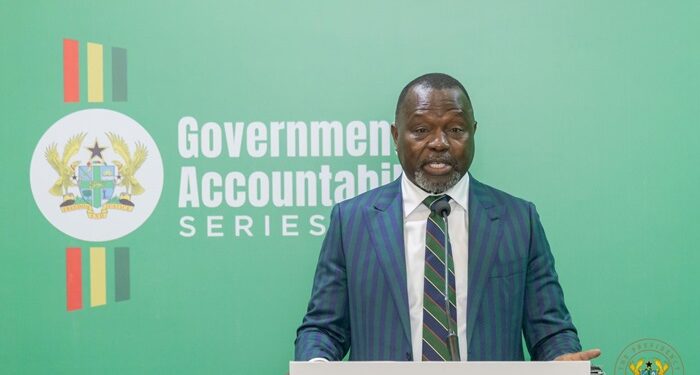The Labour Division of the High Court in Accra has fixed Tuesday, September 23, 2025, to hear two ex-parte applications filed by eleven West African nationals who are contesting their continued detention in Ghana following their deportation from the United States.
According to a report by Citi Newsroom, the applicants are pursuing two key legal remedies: an interim injunction to halt their deportation to their respective home countries, and a writ of Habeas Corpus compelling the government of Ghana to produce them in court and justify the legality of their detention.
Their petition raises serious constitutional and human rights questions that place Ghana’s judiciary at the center of an unfolding international controversy.
At a virtual sitting on Thursday, September 18, Justice Priscilla Dikro announced that she required more time to thoroughly examine the applications before delivering a ruling.
Counsel for the applicants, Oliver Barker-Vormawor, argued that the matter demanded urgent judicial intervention, insisting that his clients had been unlawfully detained without due process.
The applicants’ legal team contends that President John Dramani Mahama has already made public Ghana’s intention to deport the individuals, a position subsequently confirmed by the Minister for Foreign Affairs. The interim injunction therefore seeks to restrain that process, while the writ of Habeas Corpus demands a formal court order directing state authorities to bring the applicants before the court to account for the basis of their confinement.
The eleven detainees are made up of nationals from five West African countries. They include Nigerians Daniel Osas Aigbosa, Ahmed Animashaun, Ifeanyi Okechukwu, and Taiwo K. Lawson; Liberian national Kalu John; Togolese nationals Zito Yao Bruno and Agouda Richarla Oukpedzo Sikiratou; Gambian national Sidiben Dawda; and Malians Toure Dianke and Boubou Gassama. Collectively, they argue that their removal from the United States and subsequent detention in Ghana amount to violations of both local and international law.
Their lawsuit has been filed against the Attorney-General, the Chief of Defence Staff, and the Comptroller-General of the Ghana Immigration Service at the Human Rights Division of the High Court. The applicants claim their fundamental rights have been grossly violated through arbitrary detention, lack of judicial oversight, and denial of access to legal recourse.
In affidavits presented to the court, the applicants allege that they were secretly taken from U.S. detention centers between September 5 and 6, 2025. They state they were shackled, forcibly removed without prior notification, and transported by air to Ghana under heavy security. Upon arrival, they claim they were handed over to Ghanaian authorities and confined in what they believe is a military facility, with no access to family, legal representation, or court supervision.
The individuals maintain that these actions contravene Article 14(1) of Ghana’s 1992 Constitution, which guarantees the right to personal liberty, and Article 23, which ensures administrative justice. They also argue that the principle of non-refoulement—an international norm that prohibits returning individuals to countries where they may face persecution, torture, or inhumane treatment—has been ignored in their case.
According to their lawyers, at least eight of the applicants had previously been granted “Withholding of Removal” or “Deferral of Removal” status under the U.S. Convention Against Torture (CAT) proceedings. This protection explicitly bars their deportation to their countries of origin due to the risk of grave human rights violations, raising questions about the legality of their forced transfer to Ghana.
The group is therefore asking the High Court to enforce their rights under Article 33(1) of the Constitution and to provide immediate protection consistent with Ghana’s domestic obligations and its commitments under international human rights conventions. They stress that failure to intervene would set a troubling precedent for the treatment of deportees and asylum seekers across the region.
The court is expected to hear the interim applications on September 23, after which attention will shift to the substantive case regarding the enforcement of their fundamental rights.
Sources: abcnewsgh.com and citinewsroom.com




